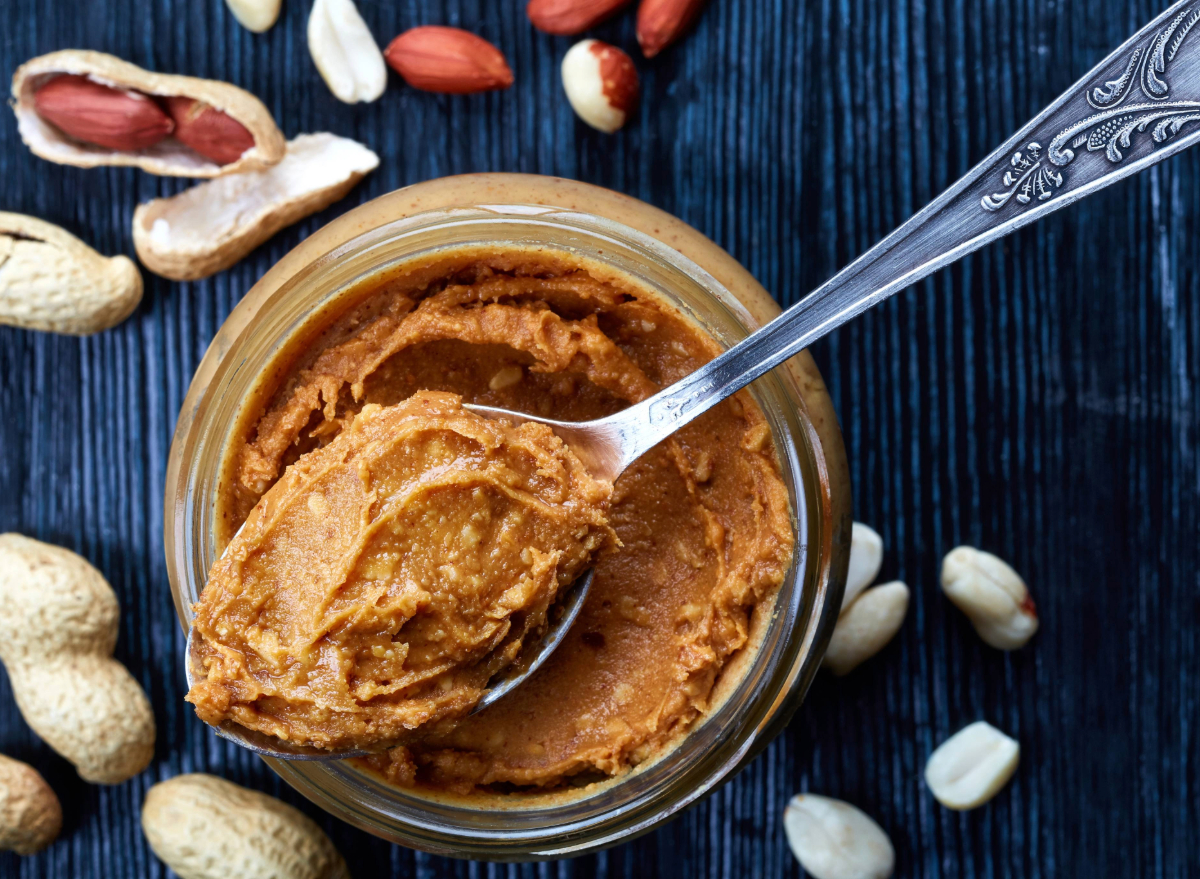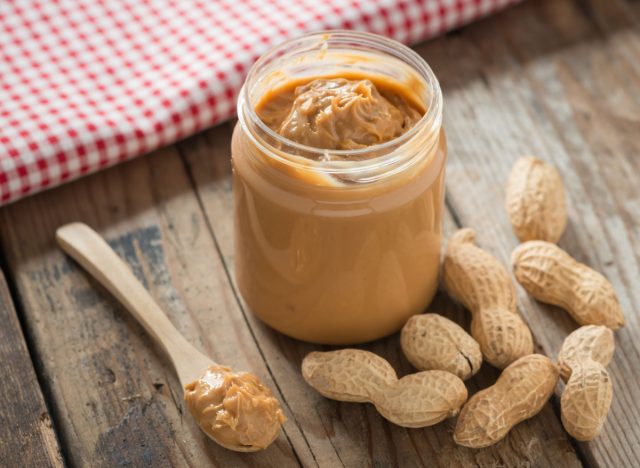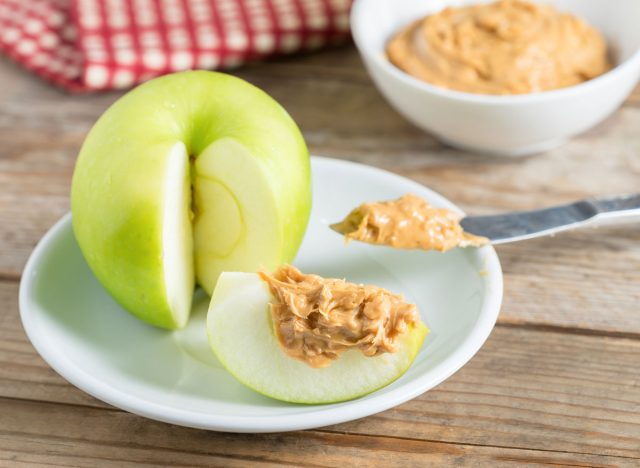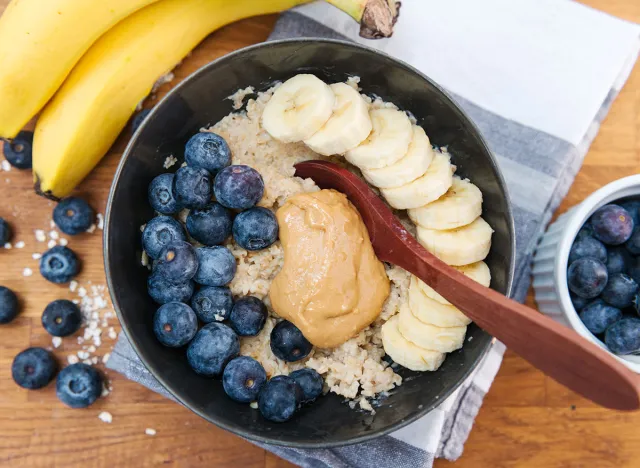Here’s What Eating Peanut Butter Does to Your Waistline

If you’re a peanut butter fan, you’re certainly not alone. This creamy, salty treat is often recommended by registered dietitians as a protein-packed addition to fresh fruit smoothies or a tasty topping to rice cakes with sliced bananas. Two tablespoons of peanut butter provide around nine grams of protein and two grams of fiber. However, too much of anything is never a good thing. That’s why we spoke with an expert who breaks down exactly what eating peanut butter does to your waistline, along with how to enjoy this beloved pantry staple healthily.
Keep reading to learn more, and when you’re finished, be sure to check out these 12 Essential Rules To Get Back Into Shape After a Long Break.
What can eating peanut butter do to your waistline?

Enjoying your favorite foods—even healthy ones!—in moderation is key. According to Amy Goodson, MS, RD, CSSD, LD, a registered dietitian and certified specialist in sports dietetics who sits on our Medical Expert Board, “Eating too many calories from any food—especially higher fat foods like peanut butter, nuts, and avocado—can contribute to weight gain and affect your waistline. Peanut butter is nutrient-dense, but is also a calorie-dense food, primarily because it contains a significant amount of fat. While it’s a source of healthy monounsaturated and polyunsaturated fats, as well as protein, it’s important to consume it in moderation.”
The pros and cons of eating peanut butter:

Goodson shares a few plus and minuses of consuming peanut butter.
- Caloric Surplus: If you continue to consume a greater number of calories than your body requires, that extra energy turns into fat. “Peanut butter is relatively high in calories, so consuming it in excess can contribute to a caloric surplus, leading to weight gain,” Goodson warns. This leads us to our next point.
- Weight Gain: Peanut butter offers healthy fats, but as previously stressed, moderation is crucial. “Overeating can lead to an increased intake of both healthy and unhealthy fats, contributing to overall weight gain,” Goodson tells us.
- Satiety: Even though peanut butter packs in calories, it’s also full of protein, which can leave you feeling full and satisfied.
How can you incorporate peanut butter into a healthy diet?

If you want to keep a trim waistline, incorporating a variety of fresh, healthy foods in your diet and practicing moderation is the name of the game. “As a registered dietitian, I eat peanut butter every single day of my life, but only about 1.5 tablespoons of it in my oatmeal,” Goodson shares. “So, it is possible, your intake just needs to fit within your total daily calorie needs. Because it’s delicious, you just have to be careful with how much you eat. Measuring high-calorie foods like peanut butter can be helpful for managing calories.”









